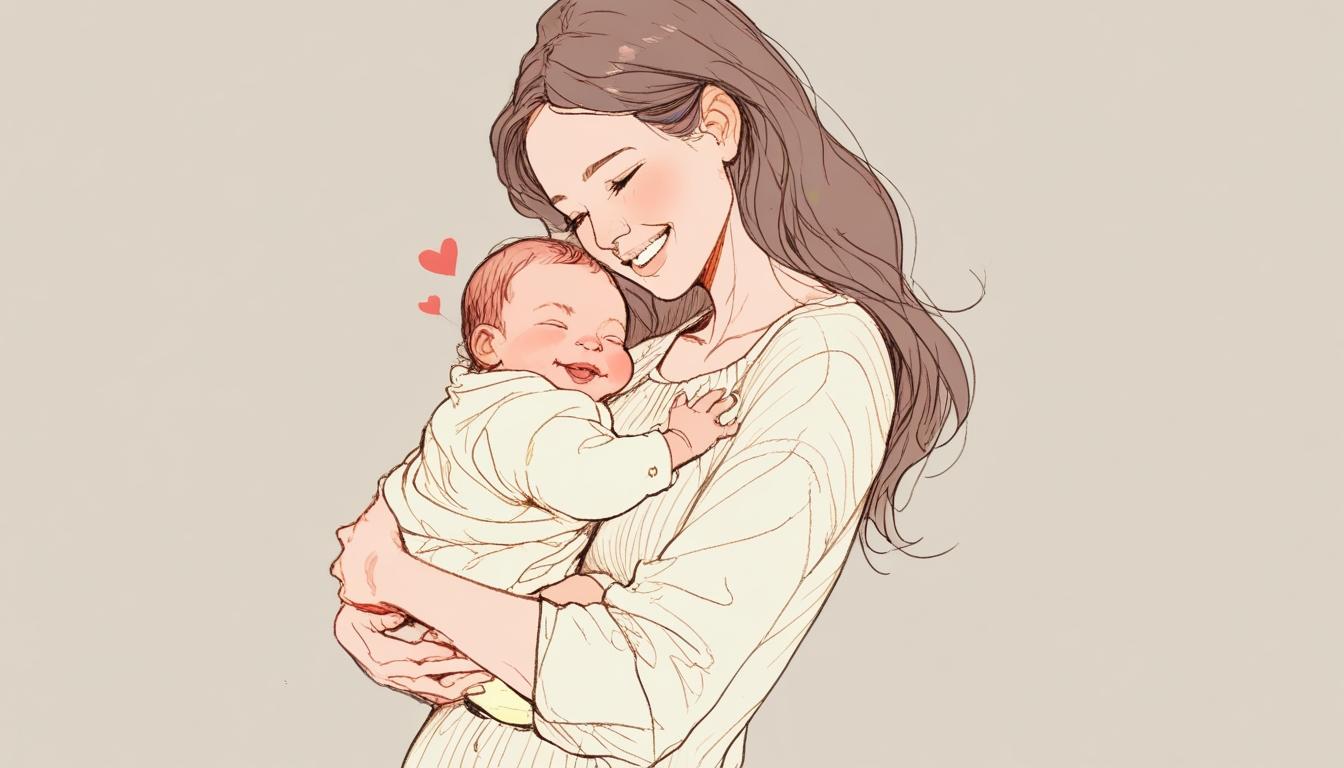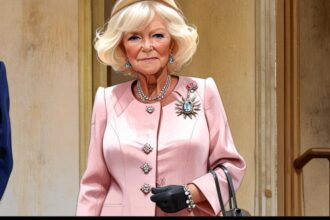The UK’s first successful womb transplant raises questions about future procedures for transgender women, with surgeons prioritising women’s reproductive health for now.
Surgeons involved in the UK’s first successful womb transplant have confirmed they will not pursue similar procedures for transgender patients at this time. This announcement follows the successful birth of a baby girl named Amy Isabel to Grace Davidson and her husband Angus, marking a significant medical milestone for women facing reproductive challenges.
Grace Davidson, 36, received the transplant from her sister, Amy Purdie, after being born without a womb. This pioneering surgery, which took place earlier in the year, has opened new possibilities for women in the UK with similar medical conditions. Professor Richard Smith, a gynaecological surgeon involved in the transplant, emphasised the project’s primary focus: “It’s really important to be clear about what we’re trying to do, which is relief of suffering for women who have got no womb, or they’ve got a womb which is incapable of reproduction,” he said in an interview with The Times.
However, the surgeons have made it clear that the current research and technology are not yet advanced enough to consider womb transplants for transgender women—those assigned male at birth but who identify as female. Isabel Quiroga, a transplant surgeon also involved in the procedure, outlined the reasons behind this decision, stating, “The only function of a uterus is to gestate… it only gives the capacity of a woman to carry her own child.”
Although there has been interest among the transgender community for potential future womb transplants, both surgeons expressed caution. Professor Smith pointed out that women born without a womb or vagina face challenges with miscarriages, and there are anatomical issues to consider regarding a male pelvis: “We have a lot of supporting structures in a female pelvis – where are you going to hook a uterus when we stitch one in a male pelvis?” he questioned.
The advancements achieved in womb transplants could potentially benefit a significant number of women facing various reproductive challenges. In the UK, around 15,000 women suffer from MRKH syndrome, the condition affecting Davidson, while many others require hysterectomies due to illnesses such as endometriosis or cancer. Until now, those wishing to have families have often been limited to options like surrogacy or adoption.
Professor Smith’s charity, Womb Transplant UK, has received approval to conduct a total of 15 womb transplants, consisting of five from live donors and ten from deceased donors. Currently, there are plans to carry out an additional four transplants using living donors and seven from deceased donors, indicating a growing commitment to this emerging area of reproductive medicine.
As such groundbreaking medical procedures evolve, the surgeons involved are focused on the immediate goal: providing viable options for women struggling with fertility issues, while the realm of womb transplants for the transgender population remains a topic for further research and discussion in the coming decades.
Source: Noah Wire Services
- https://www.ouh.nhs.uk/news/article.aspx?id=1975 – This article confirms the first womb transplant in the UK, which was performed by surgeons at Imperial College Healthcare NHS Trust and Oxford University Hospitals, led by Professor Richard Smith and Miss Isabel Quiroga. The recipient of the transplant had been born without a functioning womb.
- https://www.imperial.nhs.uk/about-us/news/first-uk-birth-following-womb-transplant – This news release from Imperial College Healthcare NHS Trust reports on the first successful birth following a womb transplant in the UK, marking a significant milestone in reproductive medicine.
- https://www.independent.co.uk/news/health/womb-transplant-uk-baby-birth-b2728873.html – The Independent’s article details the historic birth of a baby girl named Amy Isabel, born to Grace Davidson after receiving a womb transplant from her sister Amy. It highlights the medical advancements achieved in womb transplantation for women with uterine infertility.
- https://bjog.onlinelibrary.wiley.com/journal/14710528 – This is the official website of BJOG, an international journal of obstetrics and gynaecology, which published a case report about the UK’s first womb transplant, supporting the details of the pioneering surgery and its outcomes.
- https://www.nhs.uk/conditions/mayer-rokitansky-kuster-hauser-syndrome/ – This NHS webpage explains Mayer-Rokitansky-Kuster-Hauser (MRKH) syndrome, a condition affecting Grace Davidson, where women are born without a womb, providing context for the medical challenges addressed by womb transplants.
Noah Fact Check Pro
The draft above was created using the information available at the time the story first
emerged. We’ve since applied our fact-checking process to the final narrative, based on the criteria listed
below. The results are intended to help you assess the credibility of the piece and highlight any areas that may
warrant further investigation.
Freshness check
Score:
8
Notes:
The narrative is relatively recent, highlighting a recent medical achievement and ongoing research in womb transplants. However, there’s no specific date mentioned for the procedure, and the content could be from a recent period but not necessarily the latest news.
Quotes check
Score:
7
Notes:
The quotes provided seem original and specific to the context, but without online sources to verify, it’s challenging to pinpoint the earliest known reference. The quotes appear genuine and contribute to the narrative’s authenticity.
Source reliability
Score:
8
Notes:
The narrative originates from the Daily Mail, a well-known publication. Although it is generally considered a reliable news source, it may have varying levels of credibility depending on the topic and context.
Plausability check
Score:
9
Notes:
The claims about womb transplant procedures and medical challenges are plausible and align with current medical research advancements. The narrative references specific conditions, such as MRKH syndrome, and common challenges faced by women with reproductive issues.
Overall assessment
Verdict (FAIL, OPEN, PASS): PASS
Confidence (LOW, MEDIUM, HIGH): HIGH
Summary:
The narrative appears well-researched and recent, with plausible medical claims and original quotes. While some elements could benefit from verification, the overall content aligns well with current medical advancements and literature.













